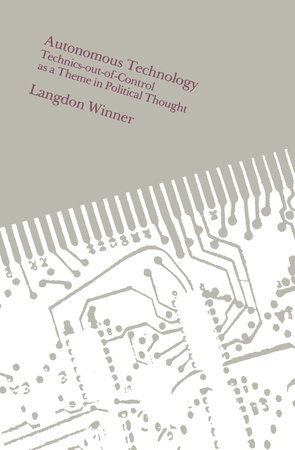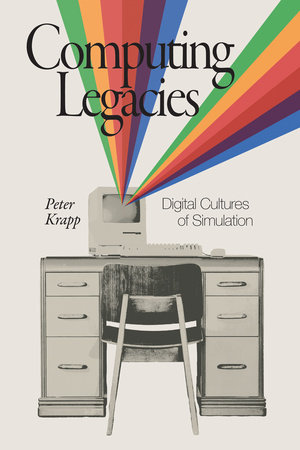


-
$40.00
Aug 15, 1978 | ISBN 9780262730495
Buy the Paperback:
YOU MAY ALSO LIKE

Too Much Fun

Log-Linear Models, Extensions, and Applications

Quotes for All Seasons

National Parks Stickerology

Computing Legacies

Darwinizing Gaia

A Just Transition for All

Starlore of the Constellations

Houseplant
Praise
Readers interested in technology, politics, and social change will find Autonomous Technology a useful guide and a thoughtful inquiry into the relationship between technology and society. In it, Winner outlines the paradoxes of technological development, the images of alienation and liberation evoked by machines, and he assesses the historical conditions underlying the exponential growth of technology. Winner brings together the ideas of several gifted observers of industrial society, among them Karl Marx, Lewis Mumford, Jacques Ellul, Herbert Marcuse, John Kenneth Galbraith, and Hannah Arendt, pointing up the importance (and shortcomings) of their thinking on technological and technocratic development. In asking the question, What have we created?, Winner evokes the myths of Frankenstein and Prometheus to illustrate the possibility that we may all face a permanent bondage to our own inventions. To answer the question, What is to be done about what we have created?, Winner explores the possibilities offered by epistemological luddism. ‘The author, an assistant professor of political science, has read the many artists and social scientists concerned with the consequences of uncontrolled technological development. But his inspiration is also fed by the anti-technological reactions he witnessed in the early sixties….. The book is extremely well documented and written.’—Sociology—
This study of the idea of technology out of control makes an important contribution to our understanding of the problems of civilization. The basic argument is not that some persons or groups promote technology against the public interest (true though that is), or even that our technology develops in its own way in spite of all our efforts to control it (also true in some respects). Rather, Winner is concerned with a more subtle effect: the artifacts that we have invented to satisfy our material wants have now developed, in size and complexity, to the point of delimiting or even determining our conception of the wants themselves. In that way, we as a civilization are losing mastery over our own tools…. ‘As a source for readings and reflections on this problem, the book is rich and rewarding…. If it has a practical lesson, it is that of awareness: only by recognizing the boundaries of our socially constructed scientific-technological reality can we transcend them in imagination and then achieve effective human action.’
—Jerome R. Ravetz, Science—21 Books You’ve Been Meaning to Read
Just for joining you’ll get personalized recommendations on your dashboard daily and features only for members.
Find Out More Join Now Sign In









